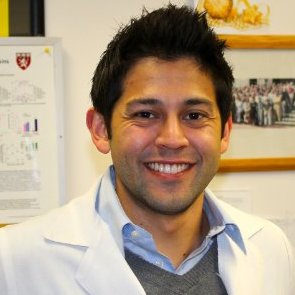Science Policy and the Road Ahead
Career Story Blog Post By Sesquile Ramon, PhD, Health Policy Specialist and AAAS Fellow
So you got a Ph.D., now what? Degree in hand, you now have the option to pursue a diverse number of career possibilities, including science policy. You do not necessarily need another academic degree, but you do need to diversify the skills section on your CV and learn how to leverage and translate your graduate school skills into marketable ones.
Building a Career in Science Policy
Career Story Blog Post By Brad Smith, PhD, Director of Policy at FasterCures, a center of the Milken Institute1
In the 15 years since I earned my PhD, I’ve had experiences, met people, and made contributions that I could never have imagined had I stayed at the lab bench. As I was finishing up my graduate work (studying DNA repair in E. coli and B. subtilis), I made the decision to embark on a career in science policy. There are many ways to engage in the public policy process as a scientist. My work has orbited around the intersecting axes of science policy, health policy, and national security policy. I’ve fielded phone calls about B. anthracis at the height of Amerithrax in October 2001 (just two months after I defended my thesis!), worked with Congress to pass needed legislation, coached former prime ministers and other leaders to mimic an international crisis as the BBC’s cameras were rolling, analyzed innovative R&D policies while in a think tank and then got the opportunity to implement one such policy in the federal government.
1Adapted from: Smith, B., “Careers at the Interface of Biology and Public Policy,” ASBMB Today, Sep. 2006.
Build Career Preparation Into Your Ph.D. Experience
News Article By Dr. Michael Baranello, Ph.D., Industry Postdoctoral Affiliate
After the dust from your successful defense settles, future becomes the present. For those that have long decided to pursue a career in academia, postdoctoral positions await, along with the process of relocation, and perhaps a vacation that has been put off for the last 4+ years. Because this is a URBEST blog, aimed at broadening scientific career opportunities beyond academia, you may not be one of these individuals. Amidst the chaos of the final year of your Ph.D., you may have had the incredible foresight to connect with reputable industrial, government, regulatory, or clinical entities, and convinced their hiring representatives that your skills and early career aspirations are well matched with the goals of their team. I wish I was speaking of my own foresight and professional acumen (unfortunately, I am not), but my hope is that readers will recognize their own graduation timeline and map out available resources to better approach post-graduate endeavors. If you are 1-2 years away from completing your Ph.D., it is a good time to critically assess the individual search filters that will determine the types of positions, teams, and organizations you pursue. Finding opportunities is somewhat straightforward (the internet is full of options), but building yourself into a strong candidate and fostering the best connections to successfully attain your first post-grad role can be more difficult. All of this takes time, but if addressed early (and seriously) enough, the process can be built in to your Ph.D. experience.



